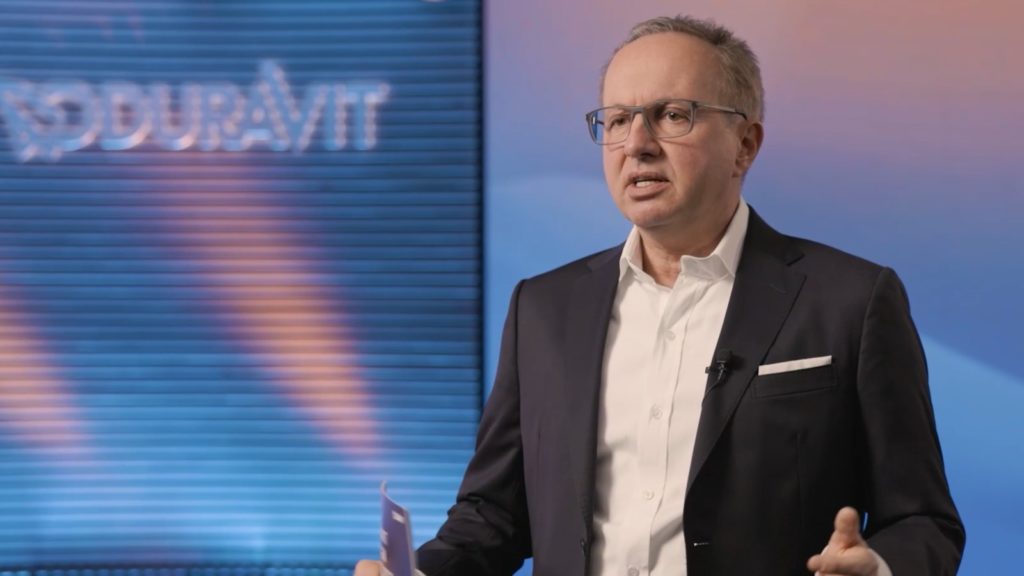Bathroom manufacturer Duravit achieved its best sales of €604million in the history of the company in 2021, an increase of 28% compared to 2020.

Similarly, it reported operating profit performed “significantly” better than net sales in 2021 and rose by 41% to €73.7million.
Much of the growth can be attributed to sales in China, where the company generated revenues over one billion RMB (approximately €139million), an increase in turnover of 32%
Sponsored Video
However, the company has also generated added value in its European sales region, with an increase of 28% to €328.6million
Speaking at its online Design Days event, CEO of Duravit Stephan Tahy explained the company had achieved the results in a three-prong attack having taken advantage of the booming industry, made structural changes to the business in sales and marketing, and the launch of d.Neo and its White Tulip series.
In addition, Stephan Tahy pointed to the acquisition of Bernstein as contributing to the company’s sales success.
Under the theme “More Design. More Duravit. More You”, The Design Days event saw the unveiling of Zencha, its first bathroom collection with Sebastian Herkner, Ketho.2 by Christian Werner, a refinement of Ketho, and two mid-priced collections from Philippe Starck with the Soleil bathroom and Tulum brassware.
Tahy exclaimed the company had “ambitious” future goals: “We are confident we will achieve sales of €1billion by 2025 and continue expanding our global production capacity.”
However, the bathroom manufacturer also highlighted its sustainability ambitions with the goal of being climate neutral production.
“Our growth strategy has a local context. We focus on regional production and procurement, not least for reasons of sustainability”,Tahy stated.
He continued: “We are moving purposely towards our major goal of climate neutral production in 2045.
The company uses green electricity and recycled water in production, has installed water-saving technology and uses recycled raw materials.
It is also working with farmers in the Black Forest on projects to improve soil and offset CO2 emissions.
However, Tahy stated: “We aim for more, and that’s why we are constantly reviewing our entire value chain to make further savings in energy and raw materials.”



